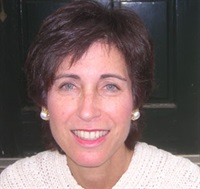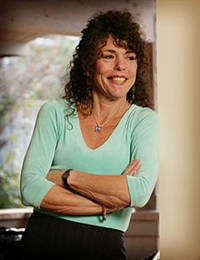CC13 Topical Panel 01 - Infidelity - Ellyn Bader, PhD; Janis Abrahms Spring, PhD; Michele Weiner-Davis, MSW, LCSW
- Average Rating:
- Not yet rated
- Topic Areas:
- Infidelity | Topical Panels | Couples Therapy
- Categories:
- Couples Conference | Couples Conference 2013 | Pioneers in Couples and Family Therapy
- Faculty:
- Ellyn Bader, PhD | Janis Abrahms Spring, PhD, ABPP | Michele Weiner-Davis, LCSW
- Duration:
- 1:01:24
- Format:
- Audio Only
- Original Program Date:
- Apr 20, 2013
- License:
- Never Expires.
Description
Description: A panel of expert therapists delves into the intricate challenges of infidelity, discussing healing strategies, emotional complexities, and therapeutic approaches for couples navigating the aftermath of an affair. Panelists share insights on creating hope, understanding individual experiences, and supporting couples through the difficult journey of rebuilding trust and intimacy.
Educational Objectives:
- Compare and contrast clinical philosophical perspectives of experts.
*Sessions may be edited for content and to preserve confidentiality*
Credits
Handouts
| Timestamped Transcript (1 MB) | 25 Pages | Available after Purchase |
| Ericksonian Learning Snapshot (251.2 KB) | 2 Pages | Available after Purchase |
Faculty

Ellyn Bader, PhD Related Seminars and Products
Ellyn Bader, PhD, is a founder and director of The Couples Institute in Menlo Park, California. As a clinical psychologist, workshop leader, author, and speaker, she is dedicated to helping couples create extraordinary relationships. Over the past 30 years she has trained therapists in couples therapy throughout the United States as well as Europe, Asia, South America, and Australia. She served as a Clinical Faculty in Stanford University School of Medicine for 8 years.

Janis Abrahms Spring, PhD, ABPP Related Seminars and Products
Janis Abrahms Spring, Ph.D., ABPP, is a board certified clinical psychologist and nationally acclaimed expert on issues of trust, intimacy, and forgiveness. Her first book, After the Affair: Healing the Pain and Rebuilding Trust When a Partner Has Been Unfaithful, has sold more than a half million copies and was a Books for a Better Life Award finalist in the categories of Best First Book and Best Relationship Book. The completely updated second edition (2012) includes a new chapter on affairs in cyberspace. How Can I Forgive You? The Courage to Forgive, the Freedom Not To, was a Books for a Better Life Award finalist in the category of Best Psychology Book. Life with Pop: Lessons on Caring for an Aging Parent, a Living Well Award Silver Medalist, captures the extraordinary, ordinary personal challenges and moments of grace that come with caregiving and growing old.

Michele Weiner-Davis, LCSW Related Seminars and Products
Michele Weiner-Davis, LCSW is the Founder of The Divorce Busting Center in Boulder, Colorado. She is a popular TEDx speaker and the author of eight books including, Healing From Infidelity, and the bestselling Divorce Busting and The Sex-Starved Marriage. She is the recipient of several prestigious awards including the Outstanding Contribution to Marriage and Family Therapy Award from AAMFT.


